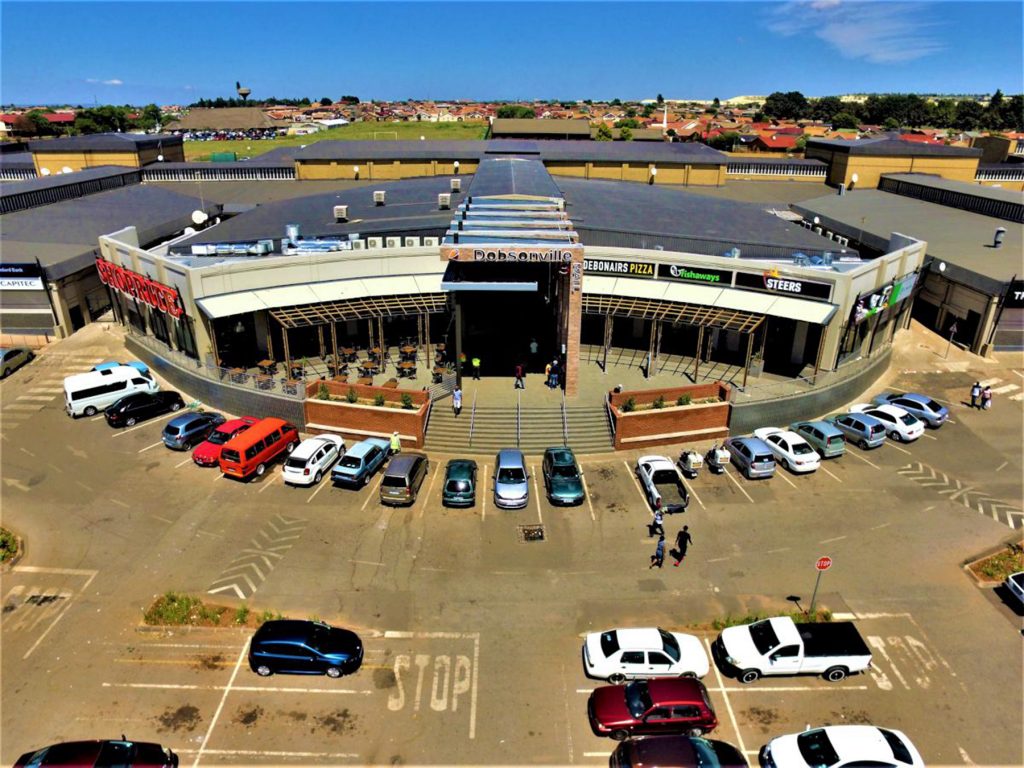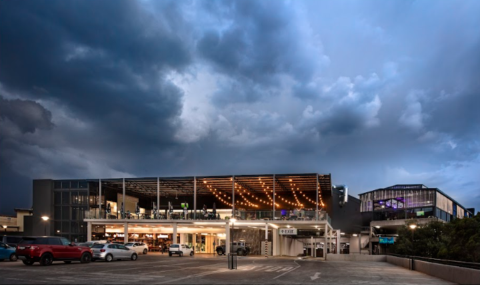Business Day Commercial Property
Adapt Or Die
Like most industries heavily affected by the coronavirus pandemic, the retail sector experienced financial losses as many tenants could not trade during last year’s level 5 lockdown. Some shops closed permanently, forcing retailers and landlords to innovate to stay in business.
Focus on sustainability
JSE-listed specialist retail real estate invest trust Vukile Property Fund responded to the crisis by seeking symbiotic solutions that ensured the sustainability of the value chain. This strategy has paid off, enabling the fund to find new ways to drive continuous value within the portfolio.
Vukile has remained “comfortably solvent and liquid”. Vacancies have held steady while the collection rate is up to 95 per cent of billing.
Itumeleng Mothibeli, Vukile Property Fund’s managing director for Southern Africa, says that they granted concessions to tenants to ensure a sustainable value chain.

“In the year ahead, we will continue to work closely with our tenants to help them pivot and reposition their business for future success where required.”
However, he says, this will be different and may entail downsizing, relocation, revamping, and upgrading of suites, for example, to the extent where it is commercially viable.
Mothibeli says Vukile’s operational strategy has always been centred around operational efficiency, stakeholder engagement and alignment, a firm commitment to innovation, and prudent balance sheet management.
“We’ve achieved this through creative leasing strategies, focused energy and water management initiatives, redefinition of how soft services are delivered within the mall context, and fully delivering on our capital expenditure programme to ensure that our malls are fit for purpose.”
Meanwhile, Redefine Properties forked out as much as R222.6-million on rental relief packages to support the sustainability of its retail tenants last year.
The company has also offered rental discounts amounting to R82-million for 2021 to cushion the prolonged impact of the pandemic, says Nashil Chotoki, Redefine Properties retail national asset manager.
He says the company’s active retail portfolio vacancy rate rose by a percentage point to 5.6 per cent in 2020 while the tenant retention rate was 92.2 per cent (94.1 per cent a year ago).
The evolution of retail

With the pandemic still very much present, businesses have had to adapt to a changing landscape. Chotoki and Mothibeli concur that retail is evolving and that retailers and landlords need to adjust to these changes to stay relevant.
“We see the need to focus on planning for a future that meets both the immediate and long-term needs of our tenants and maximises the ‘experiences’ of our customers,” says Chotoki.
Resilience is the new and urgent priority – the need for adaptability, scalability and the value of investing in the right properties and people has never been greater.
Chotoki says Redefine is in advanced negotiations to fill big-box vacancies, which has created opportunities for new entrants. “We are adjusting our tenant mix to improve value offering and convenience at some of our properties.”
Furthermore, he says that lockdown has accelerated the growth of online shopping, forcing retailers to develop and enhance online platforms.
Redefine Properties is facilitating Click N Collect; this is already operational at Kyalami Corner in Johannesburg.
Mothibeli says customer-centricity is key to the industry: understanding what drives customers is fundamental for aligning service offerings. “Innovation and technology will be vital for achieving this,” he says. “Investing in these technologies will ensure survival.”
Vukile has rolled out free Wi-Fi access across 14 of its malls, with an opt-in database of some 2.4 million unique shoppers, enabling direct communication with customers.
Mothibeli says these 2.4 million users on the Wi-Fi landing page have opened up new, alternative revenue streams for digital advertising. Furthermore, data will be used to inform leasing strategies.
Redefining the shape of retail space

The rise of e-commerce trade through this pandemic and certainly before it, is rapidly challenging the traditional retail experience. Retailers in some areas, within a matter of weeks, shifted their focus to offering more contactless shopping experiences, allowing consumers to purchase products online from local retailers, drive to the store, and have employees deliver the products straight to their cars.
Pierre Lahaye, a retail architecture expert and partner at MDS Architecture, adds that historically, retail space was designed to entice customers further in and encourage them to spend more time in the space. “In my view, experiential retail will benefit when the in-store experience shifts to fast purchasing because greater flexibility will be required in the design of the spaces. Streamlined and uncluttered stores will ensure that there is more room for customers to distance and move around.”
While people’s desire to socialise is unlikely to change, Lahaye says, consumers want to socialise differently now. “Before COVID-19, customers were increasingly looking for retail stores to provide them with greater experiences. The pandemic has now seen the pendulum swing the other way. It may be that speed and efficiency is going to overtake browsing in terms of importance when visiting shopping centres.”
Technology
“We anticipate that touchless technology will start to become the norm, though South Africa still has a large cash-based consumer base. Design elements need to incorporate technology. Bulkheads, for instance, serve as interactive flat digital screens for direct advertising and signage, while open shopfronts blur the lines between the retail and public spaces.
“Artificial intelligence has provided a greater understanding of customer preferences and retailers are aiming for greater direct engagement,” says Lahaye.
Future-proofing
Function and fun, says Lahaye, are likely to both have a role in the retail design of the future. “But making that work together requires flexibility. The more flexible the design is, the more easily you can adapt to what will happens in the world. Outdoor lifestyle offerings will be important to facilitate social interaction, and accessibility will be key.”






 Sign-up and receive the Business Media MAGS newsletter OR SA Mining newsletter straight to your inbox.
Sign-up and receive the Business Media MAGS newsletter OR SA Mining newsletter straight to your inbox.